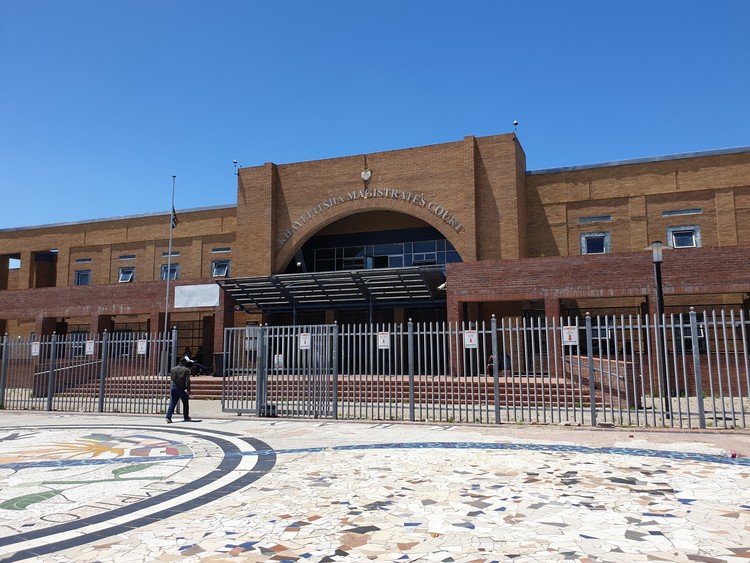It took six years for the court to convict a man for raping his foster child
The serial rapist first appeared in the Khayelitsha Magistrates’ Court in 2017 but was only convicted in August
It took six years for the Khayelitsha Magistrates’ Court to convict a man of raping his foster child for seven years. Archive photo: Mary-Anne Gontsana
- A 58-year-old man, who raped his foster daughter for seven years from the age of seven, was sentenced to life imprisonment on Thursday.
- The survivor told her school and her neighbours what was happening. Nobody did anything.
- Social workers would visit and be entertained by the foster father.
It has taken six years for the Khayelitsha Magistrates’ Court to convict a man of repeatedly raping his foster daughter from the age of seven to 13. The 58-year-old rapist, Solomon Mazamela, was sentenced to life imprisonment on Thursday.
The woman, who survived the ordeal, is 23. Her name is withheld on the magistrate’s orders.
Mazamela made his first court appearance in the Khayelitsha Magistrates’ Court on 23 November 2017. It took three years before the case got to the stage of pleading. Mazamela pleaded not guilty in April 2020. He was convicted on 25 August 2023.
The survivor said she was seven when Mazamela and his wife became her foster parents.
She said as a young child she thought her foster father’s abuse was the norm and happened to most children. She realised it was wrong when she was older and asked him to stop. But he would only stop for a couple of days, she said.
She said social workers made home visits to check on her care, but they would drink tea with Mazamela and laugh. “They would not do what they were supposed to do but laugh,” she said, before bursting into tears, prompting Magistrate Desmond Francke to ask her to be calm and take her time.
“I am angry but me feeling angry is not going to change the situation. I am angry because when I was growing up I could not be like other children and feel parents’ love and siblings’ love,” she said.
Teachers, neighbours told
She said she told teachers at her school what was happening and Mazamela was called to the school, but there were no consequences. “I don’t know what was discussed and the solutions, because I was not part of those meetings,” she said.
She said she also alerted neighbours to her situation, but they sided with Mazamela.
“At home they tried to stop me from reporting the rape to the police but that did not stop me,” she said.
Her current friends do not know her history, or even that she had been testifying in court. She said she had not told them as she did not want them to pity her or view her in a different light.
“I cannot forgive the community, the teachers, and the social workers, because I feel they have failed me. The system has failed me as well,” she said.
Asked by prosecutor Ilana Bester what punishment she thought would be suitable for Mazamela, she said, “You just make sure he does not come out [of prison] because he is not sorry and he can do it to someone else”.
Addressing the court on aggravating circumstances in regard to sentencing, Bester said the survivor has suffered psychological trauma she will have to live with for the rest of her life, and justice needed to be seen to be served. “The accused was in a position of trust. He agreed to be a foster father … and getting R750 a month [from SASSA], he still did this.”
Bester said Mazamela had not taken responsibility for his actions and the court should send a strong message.
Mazamela’s legal representative, Nathier Jassiem, said Francke should take Mazamela’s age into consideration, and that “he did not behave violently towards her”.
In sentencing him to life imprisonment, Francke said Mazamela should account for his actions and face the consequences. “Father’s raping their children is not only scandalous, but prevalent in our communities. Violence against women and children has become a scourge in our society and should not be taken lightly.”
Francke ordered that Mazamela’s name be included in the National Sex Offenders Register and that he should never work with children.
This story initially stated: "The survivor said she was seven when Mazamela and his wife became her foster parents through the South African Social Security Agency (SASSA)." It has since been clarified that SASSA does not appoint foster parents; that is a function of the Children's Court.
Support independent journalism
Donate using Payfast

Next: Cops cautioned over arresting people for cannabis use and possession
Previous: Elderly Gugulethu women celebrated at end of Women’s Month
© 2023 GroundUp. This article is licensed under a Creative Commons Attribution-NoDerivatives 4.0 International License.
You may republish this article, so long as you credit the authors and GroundUp, and do not change the text. Please include a link back to the original article.
We put an invisible pixel in the article so that we can count traffic to republishers. All analytics tools are solely on our servers. We do not give our logs to any third party. Logs are deleted after two weeks. We do not use any IP address identifying information except to count regional traffic. We are solely interested in counting hits, not tracking users. If you republish, please do not delete the invisible pixel.

